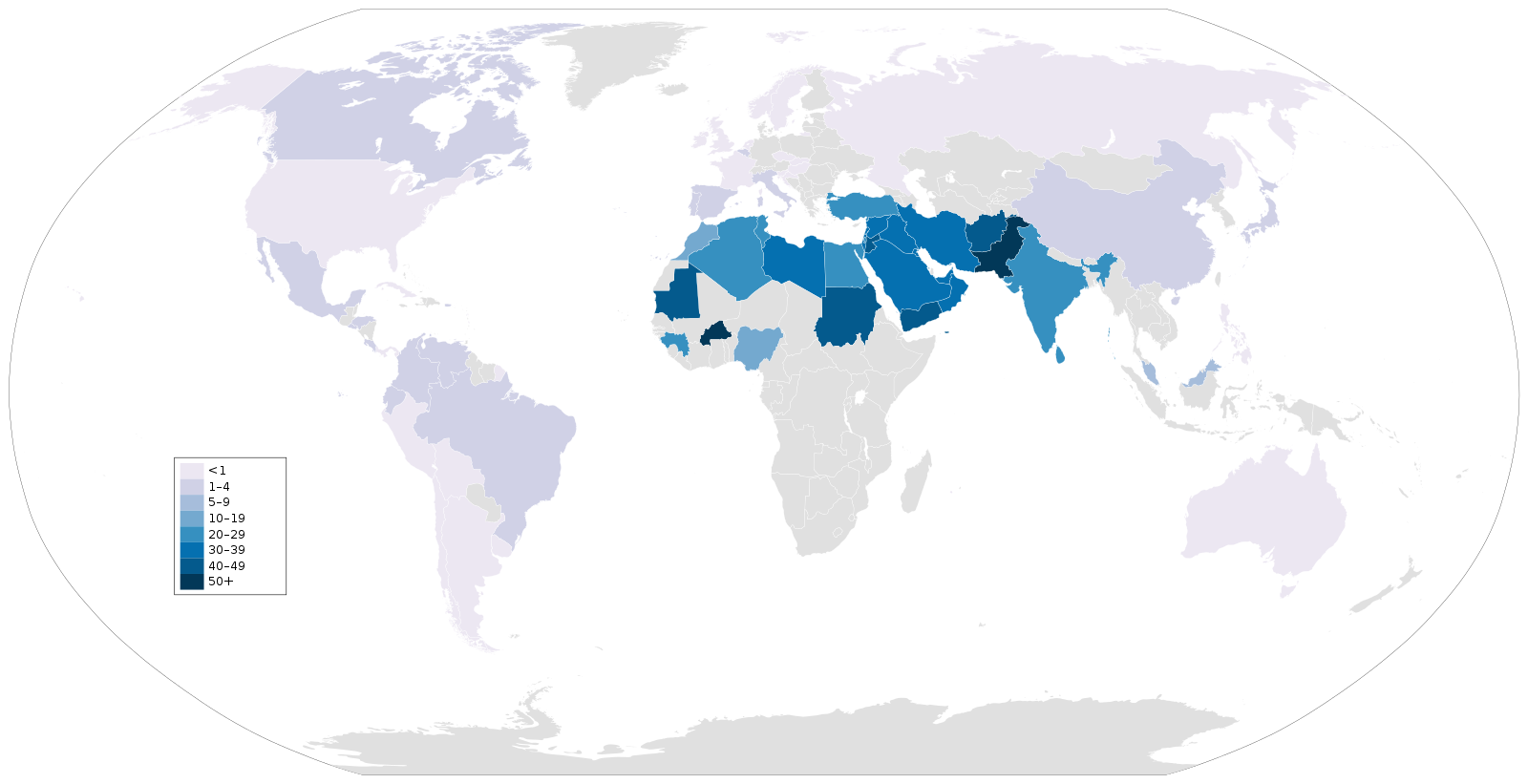Tl;dr: Inbreeding seems like it might be a surprisingly important obstacle to human and economic development in some parts of the world. My impression is that the issue seems neglected relative to its scale.
Inbreeding (also known as consanguinity) is associated with an increased risk of adverse prenatal outcomes including stillbirths, low birth weight, preterm delivery, abortion, infant and child mortality, congenital birth defects, cognitive impairments, malformations and many other complex disorders. In particular, studies suggest that inbreeding is a risk factor for things like:
- child mortality (Saggar and Bittles 2008; Fareed et al., 2017; Dorsten, 1999)
- reduced child cognitive abilities, mental retardation or intellectual disabilities (Afzal, 1999; Badaruddoza and Afzal, 1993; Gustavson, 2005)
- Fareed and Afzal, 2014 find a mean reduction ~25 full scale IQ points with the increase of inbreeding coefficient
- stunted growth, and worse child-health outcomes (Fareed and Afzal, 2014)
- birth defects (Hamamy, 2012; Sheridan et al., 2013; Jaber et al., 1998)
- coronary heart disease, stroke, cancer, uni/bipolar depression, asthma, gout, peptic ulcer, hypertension (Rudan et al., 2003a; Rudan et al., 2003b)
- schizophrenia (Mansour et al., 2010)
Various types of consanguinity are surprisingly common in some parts of the developing world. Estimates suggest one billion people worldwide live in countries where marriage among relatives is common. Of this billion, one in three is married to a second cousin or closer relative or is the progeny of such a marriage (Merten, 2019). For instance, consider these prevalence estimates reviewed in a paper by the World Bank:
Consanguinity is widespread in North Africa, Central and West Asia, as well as in most parts of South Asia (Kaiser, 2016). Further, consanguineous unions are more common in Islamic societies: in Afghanistan, the proportion of consanguineous marriages is estimated to be 46.2 percent (Saify and Saadat, 2012), in Lebanon it is 35.5 percent (Barbour and Salameh 2009), between 20.9 to 32.8 percent in the Arab Republic of Egypt, 47 to 60 percent in Iraq, 42.1 to 66.7 percent in Saudi Arabia and 40 to 44.7 percent in the Republic of Yemen (Tadmouri et al. 2009). Outside the Muslim world, consanguinity also prevails in some societies: between 20 to 45 percent of marriages in the Hindu-majority states of South India are contracted between close relatives (Bittles, 1994).

My impression is that research on this issue in the context of global health and development is scarce, and additional research might generate ample information value about potentially impactful interventions.

I'm currently actively working on this in my PhD (I'm an Economist), which developed from one of my pre-PhD courses. I have a few different ideas and am currently applying for funding for them. Truthfully, this is not one of my core research interests but I think it's relatively fertile ground for research/publication and I have some nice co-authors that I'm working with, so I don't have to devote too much time to the topic.
A few points:
I should have added the following statement. If anyone would like a quick chat about researching cousin marriage, feel free to message me.
Caveat: I'm still fairly new to the topic (there's a lot of non-econ literature) but can try to help wherever possible.
Here is a post of mine where I try to explore what a consaguinity-based intervention might look like, and what some of the benefits (cultural as well as health!) might be.